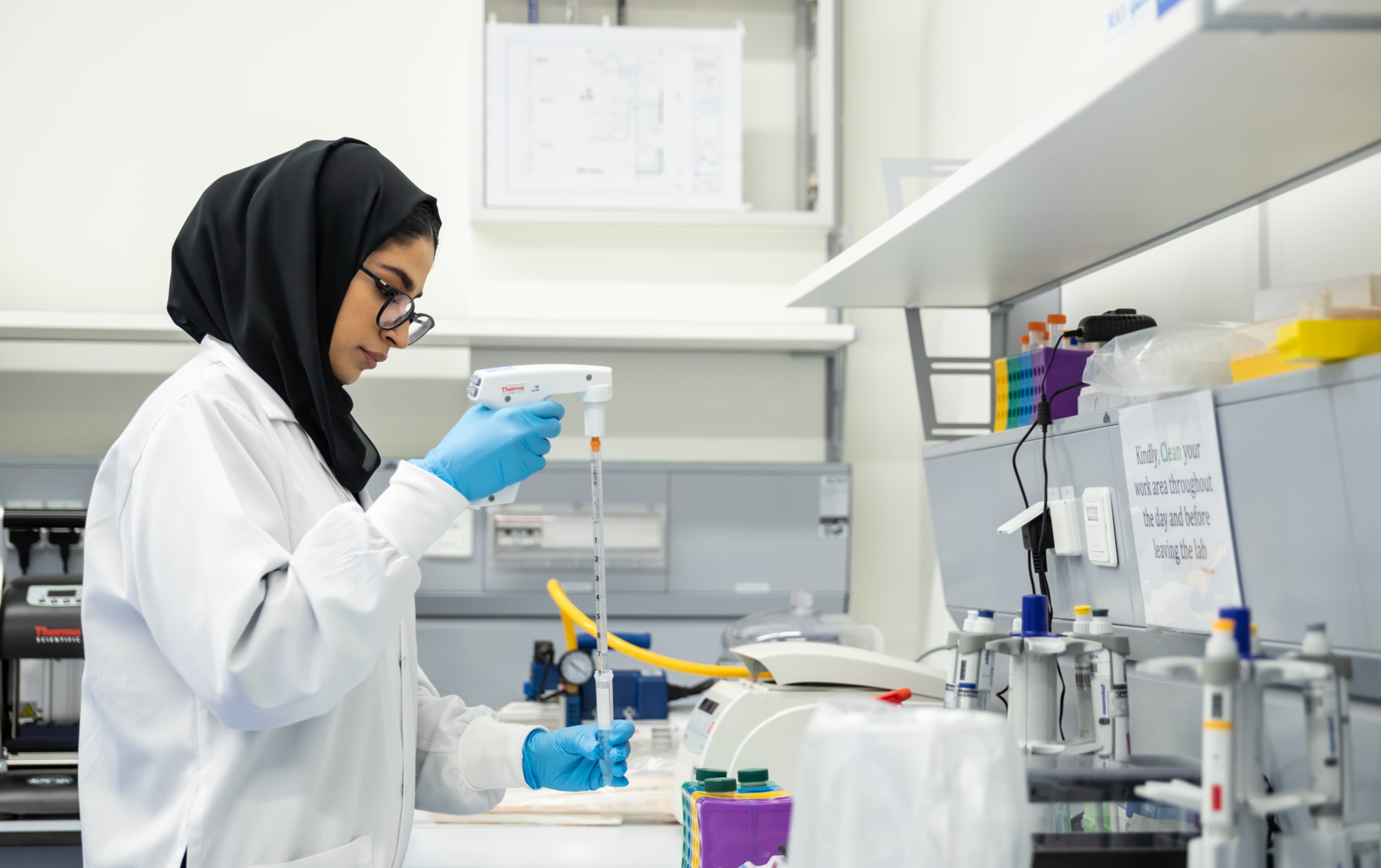
KU-BTC Now Eligible to Offer State-of-the-Art Scientific Research and Innovation in Molecular Biology Khalifa University of Science and Technology announced the Khalifa University Center for Biotechnology (KU-BTC) has become the first research center in the UAE to receive accreditation from the Emirates International Accreditation Centre (EIAC) for ‘‘Next Generation Sequencing (NGS)’, following its compliance with the ISO 15189:2012 requirements on quality and competence. With this, KU-BTC will be conducting research in a high-quality standard environment to undertake medical research in molecular biology. This accreditation strengthens the credibility and quality of services of the KU-BTC to ensure international…
Read more
Halima Alnaqbi’s PhD research addresses the gap in Arab representation in global genome data and establishes preliminary framework for organ and bone marrow transplantation in the UAE. Organ transplantation is one of the greatest advances in modern medicine and is the only life-saving strategy for patients with end-stage organ failure. Unfortunately, the need for organ donors is much greater than the number of people who donate. In the United Arab Emirates, the first successful transplantation from a deceased person was performed in May 2013. Since then, six deceased patients in the UAE have donated their organs to save the…
Read more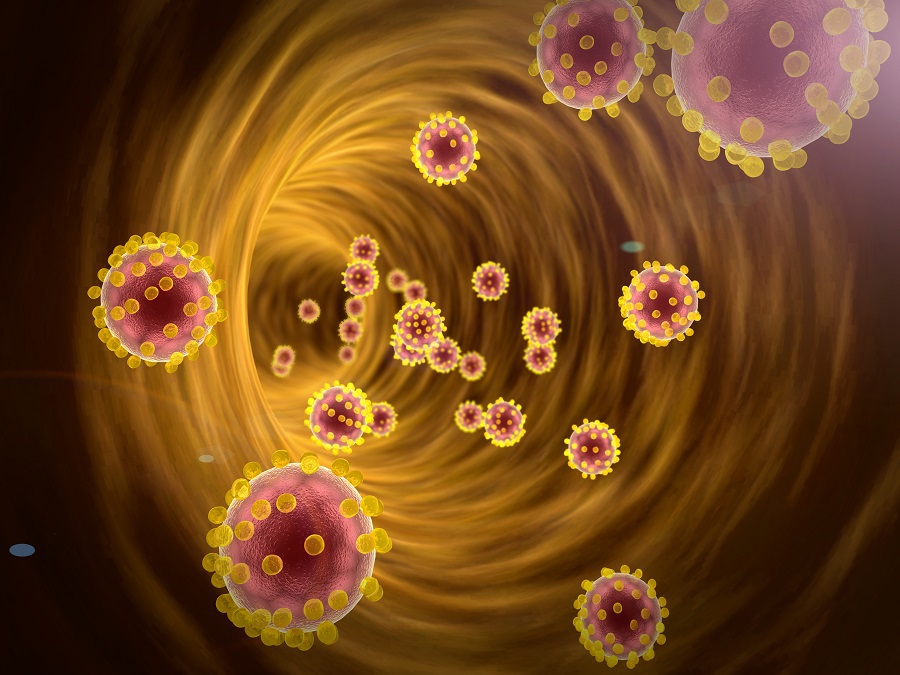
Researchers in the UAE have found that some bacteria in the gut may impact the severity of Covid-19 infections. Certain types of anti-inflammatory bacteria linked to fatty acids metabolism in the intestines strengthen the body’s immune response, indicating that the makeup of the gut microbiome may influence the severity of infection and susceptibility to the SARS-CoV-2 virus. Read the Arabic story here: https://researchku.com/news-extended/244 Khalifa University · KU Radio Science - Microbiome And Diseases With Dr. Mohammad Al Bataineh The human gut houses a complex community of microbes, a dynamic population of microorganisms that differs from one person…
Read more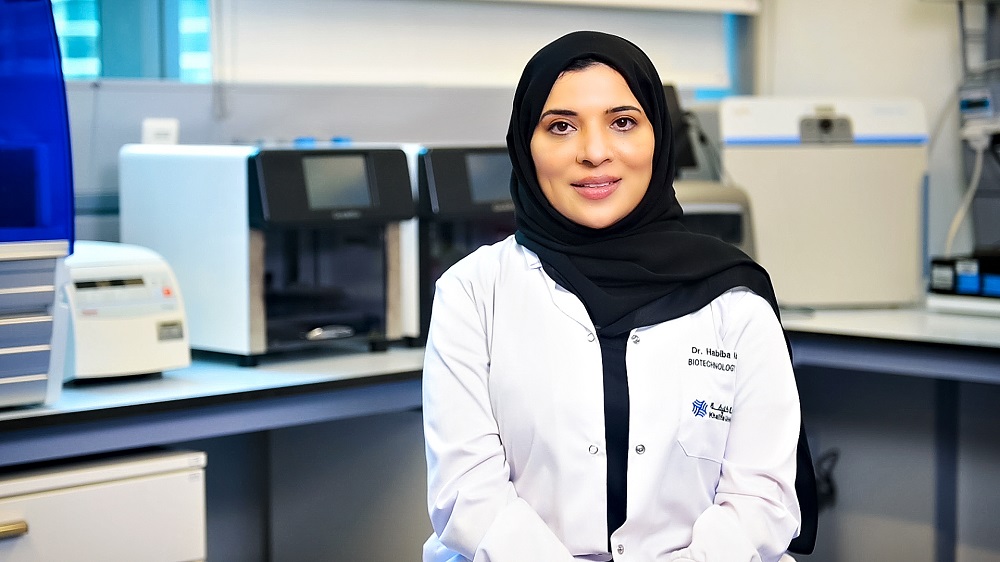
The study shows that certain types of anti-inflammatory bacteria and fatty acids in the intestines strengthen the body's immune response Scientists in the UAE have found that some bacteria in the gut may reduce the severity of Covid-19 in infected people. The study carried out by scientists at the University of Sharjah, Khalifa University of Science and Technology in Abu Dhabi, and other institutions, said the make-up of the gut microbiome may influence the severity of the disease and the body's immune response. The work is among the latest of many studies of the relationship between the…
Read more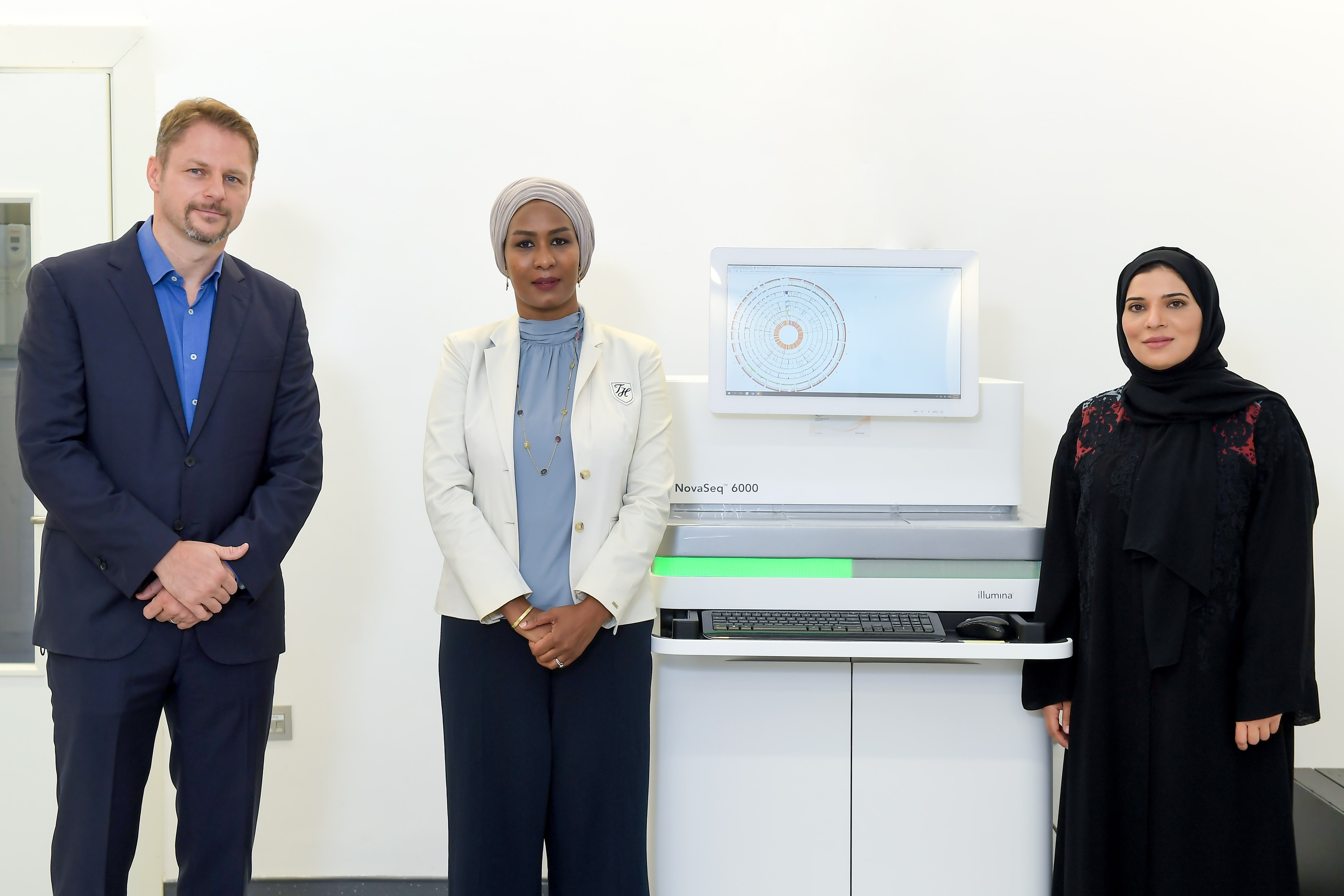
Research to Support Accurate Classification of Genome Variants for Development of Preventative Healthcare System A team of scientists from Khalifa University of Science and Technology has completed a significant local genome study that will contribute to nationwide efforts to build a high-quality, comprehensive reference genome for the UAE population. The first phase of the study -- the description of the first whole genome sequences of UAE nationals -- was completed in 2019. Subsequently, in 2020, the researchers completed the second phase which described the nature of the genetic diversity found among UAE nationals. This year, the researchers completed…
Read more
Health challenges remain one of the long-standing issues in the Arab region but biomedical computing research is one way to tackle these challenges. By Dr. Ahsan H. Khandoker Read Arabic story here. A combination of factors is driving the growth in demand for healthcare in the Middle East, including aging populations, longer life expectancies, and sedentary lifestyles that lead to an increase in obesity, cancer, and diabetes. Thanks to recent advances in computing technology, biomedical computing has become one of the most influential research areas worldwide. There has been an explosion in the volume of biomedical data…
Read more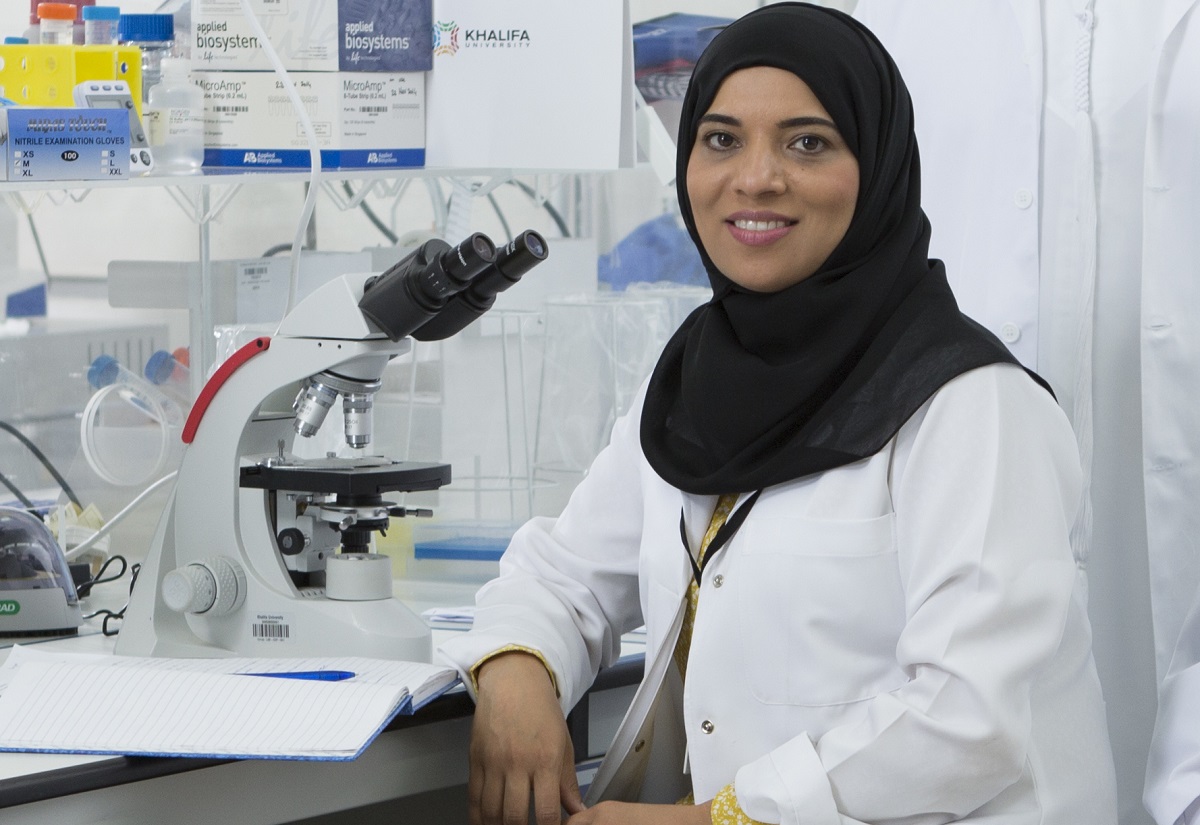
Researchers from Khalifa University have been investigating the specific genome variants that may point to risk factors for certain diseases and seeking to understand how these genetic variations can help develop more personalized treatment plans. Read Arabic story here: http://researchku.com/news-extended/53 Researchers from Khalifa University have recently published a number of articles investigating the nuances of the Emirati genome, following their research published last year describing the sequence of the first complete Emirati genome. They have since been investigating the specific genome variants that may point to risk factors for certain diseases and seeking to understand how these genetic variations…
Read more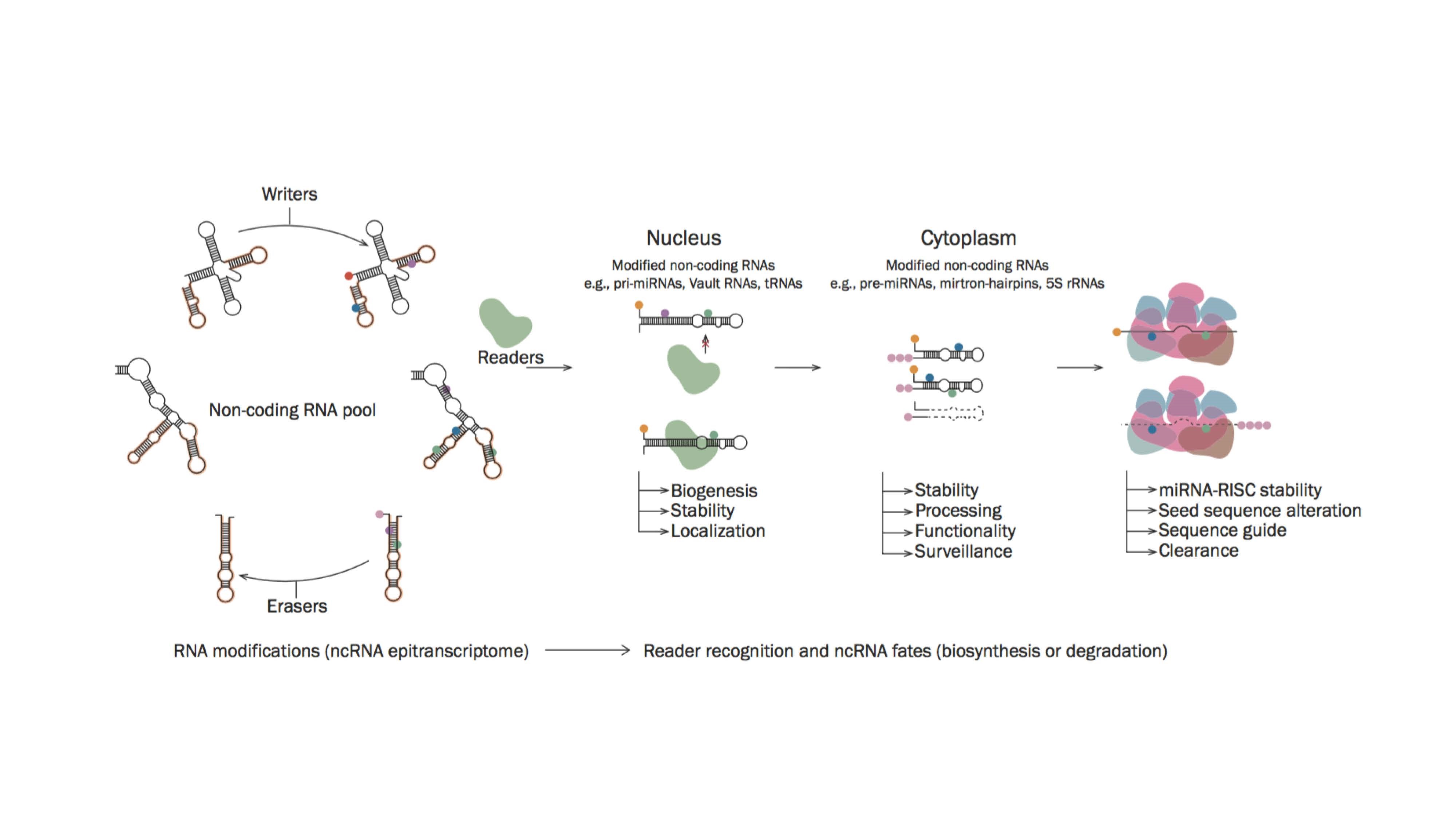
Read Arabic story here. Researchers hope stem cells will one day be effective in treating many medical conditions and diseases for which few treatments exist given that stem cells offer the potential to repair, restore, replace and regenerate cells. Despite the successes seen so far, there are several major challenges that must be addressed before stem cells can be used as cell therapies to treat a wider range of diseases. One of these challenges, investigated by a team from Khalifa University, is the pathway by which stem cells self-renew or differentiate. In a review paper recently…
Read more
Khalifa University Adds Routine COVID-19 Testing to Its List of Viral Tracking Capabilities to Assist in Mitigating the Spread of Disease Khalifa University announced that its Center for Biotechnology (BTC) has been licensed by the Abu Dhabi Department of Health (DoH) to serve as an official COVID-19 test center. The service is linked to Malaffi, a centralized database of real-time public health information, and to the Alhosn app, the official COVID-19 results and contact tracing app for the UAE. Khalifa University has thus become the first university in the UAE to open an on-campus COVID-19 testing center…
Read more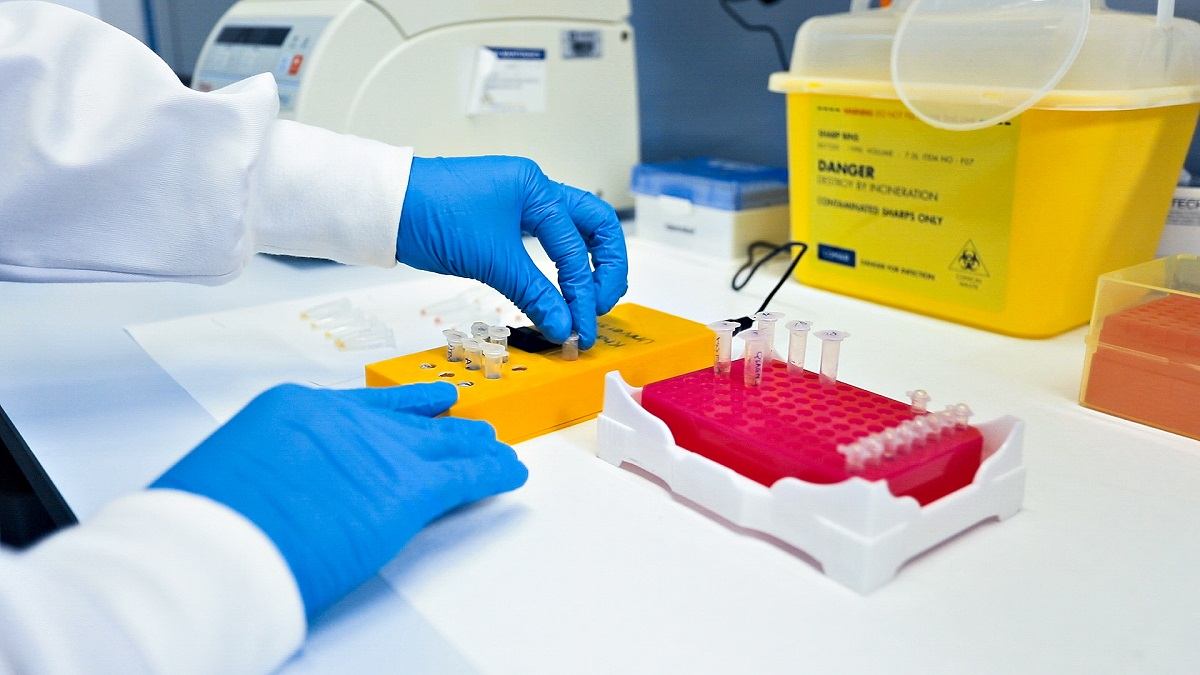
A team of researchers from Khalifa University has developed a portable Covid-19 testing kit, no larger than your average smartphone. The new kit is both portable and can deliver the results in 45 minutes only. https://www.instagram.com/tv/CF113qSpLb4/?utm_source=ig_web_button_share_sheet Dr. Anas Alazzam, Associate Professor of Mechanical Engineering and member of the System-on-Chip Lab (SoCL) is the primary investigator for the project with Dr. Habiba AlSafar, Director of the Khalifa University Center for Biotechnology and Associate Professor of Genetics and Molecular Biology, as co-principal investigator. The research team includes the Postdoctoral Researchers Dr. Waqas Waheed, and Dr. Sueda Saylan, along with Research Associate…
Read more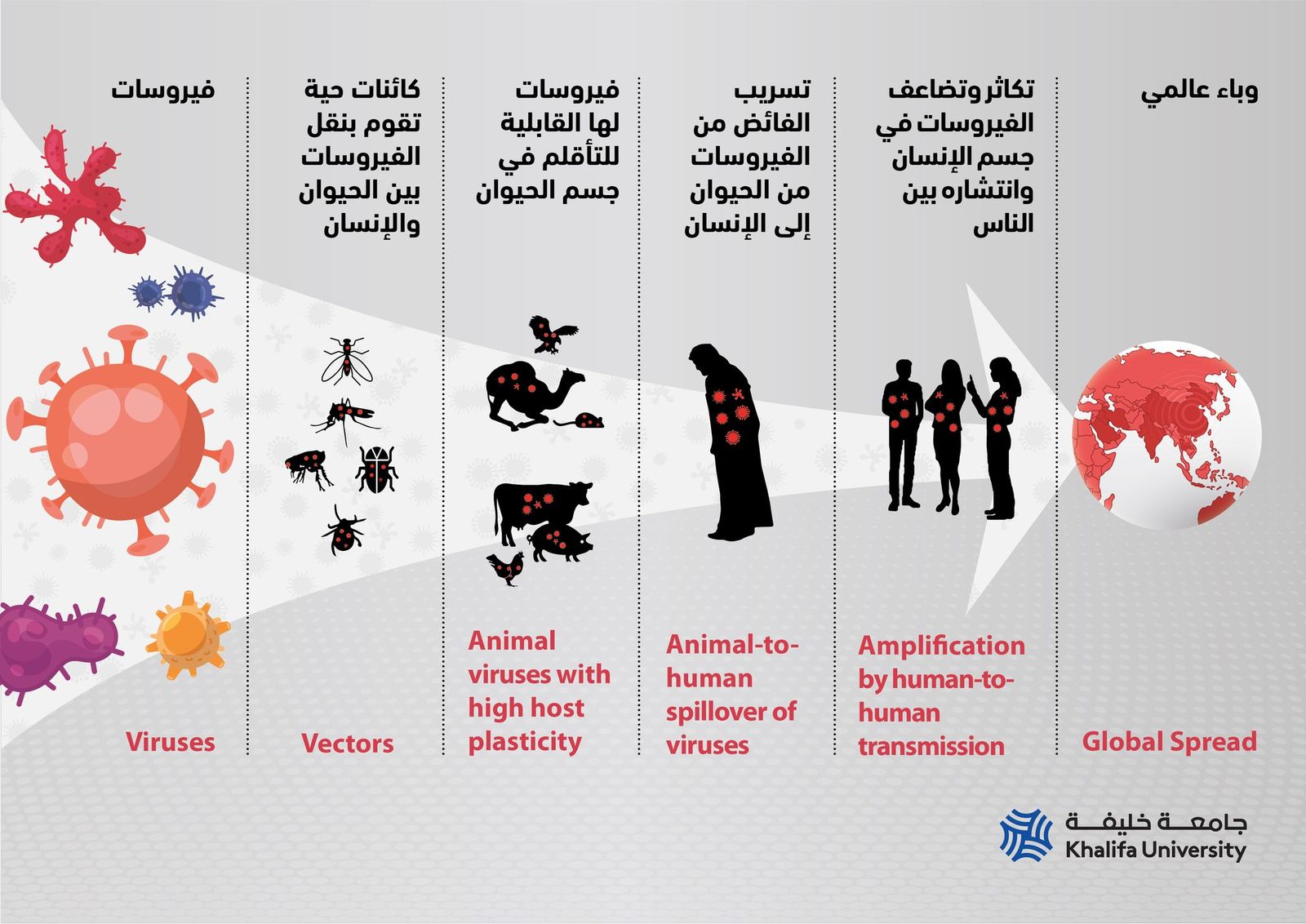
Led by Khalifa University, Project Will Help Understand What Mammals Have in Common that Facilitate Virus to Enter the Host Khalifa University of Science and Technology today announced it is leading a team of researchers to work with universities across the globe to investigate how the COVID-19 virus, usually found in animals such as bats, has made the jump to humans. This research falls under Khalifa University’s ‘COVID-19 Research and Development Task Force’ initiative, which includes multidisciplinary researchers from across the world including from the UAE, the US, China, Singapore and Australia. Collaborators from across the Middle East, North America,…
Read more
The UAE ranks among the highest nations in the world for obesity. The obesity rate among Emiratis is particularly high, with a recent study finding nearly 70 percent of Emirati men under 30 to be obese. Researchers at Khalifa University are exploring a way to stop the high rate of obesity among Emiratis, by looking directly at the genes that may be causing it, and finding a way to ‘switch them off.’ Dr. Abdulrahim Sajini, Assistant Professor of Biomedical Engineering, Dr. Habiba Alsafar, Associate Professor of Genetics and Molecular Biology and Director of the KU Center for Biotechnology…
Read more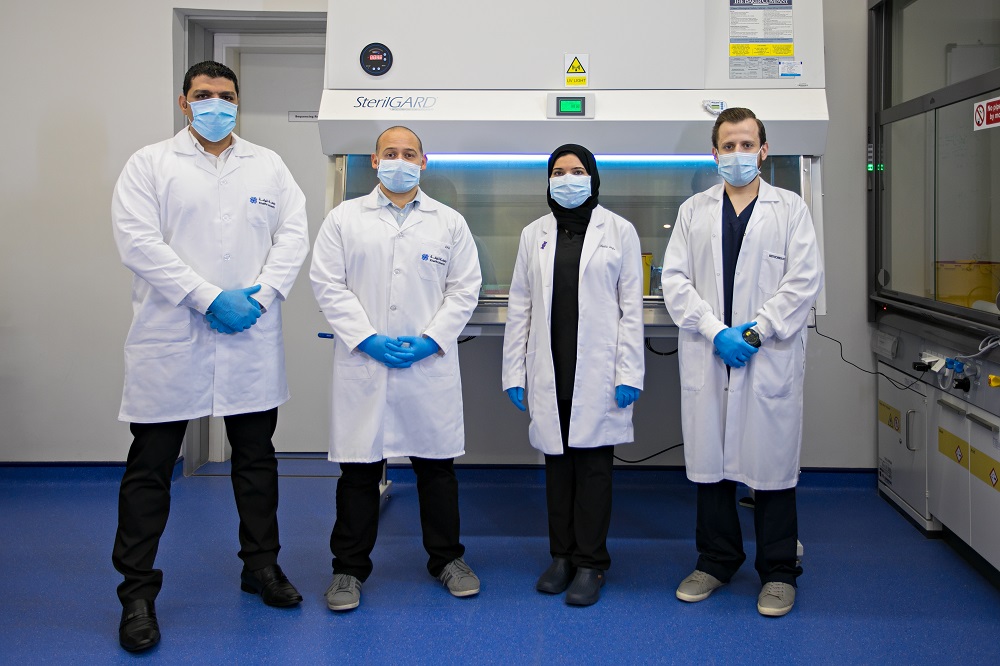
Promising Scientific Process by Researchers to Collect and Analyze Wastewater Samples for Levels of SARS-CoV-2 Multiple Times a Week for Rest of the Year and Even Beyond if Required Khalifa University of Science and Technology today announced researchers from its Center for Biotechnology (BTC) and the Center for Membranes and Advanced Water Technology (CMAT), in collaboration with other stakeholders are working together on a project for the surveillance of SARS-COV-2 viral load in municipal wastewater, as a method for early detection and tracking the spread of COVID-19 in the general population. Studies indicate that people infected with SARS-CoV-2,…
Read more
The discovery and mapping of the complete human genome in 2003 introduced the possibility of individualized medicine to a person’s physical and genetic makeup. Increasing evidence is now demonstrating that a patient’s unique genetic profile can be used to detect a disease’s onset, prevent its progression and optimize its treatment. This has led to enhanced global efforts to implement precision (personalized) medicine and pharmacogenomics in clinical practice. Among the researchers leading in this field is Dr. Sabina Semiz, Professor of Molecular Biology and Genetics at Khalifa University’s College of Medicine and Health Sciences. Dr. Semiz is leading projects in genomics…
Read more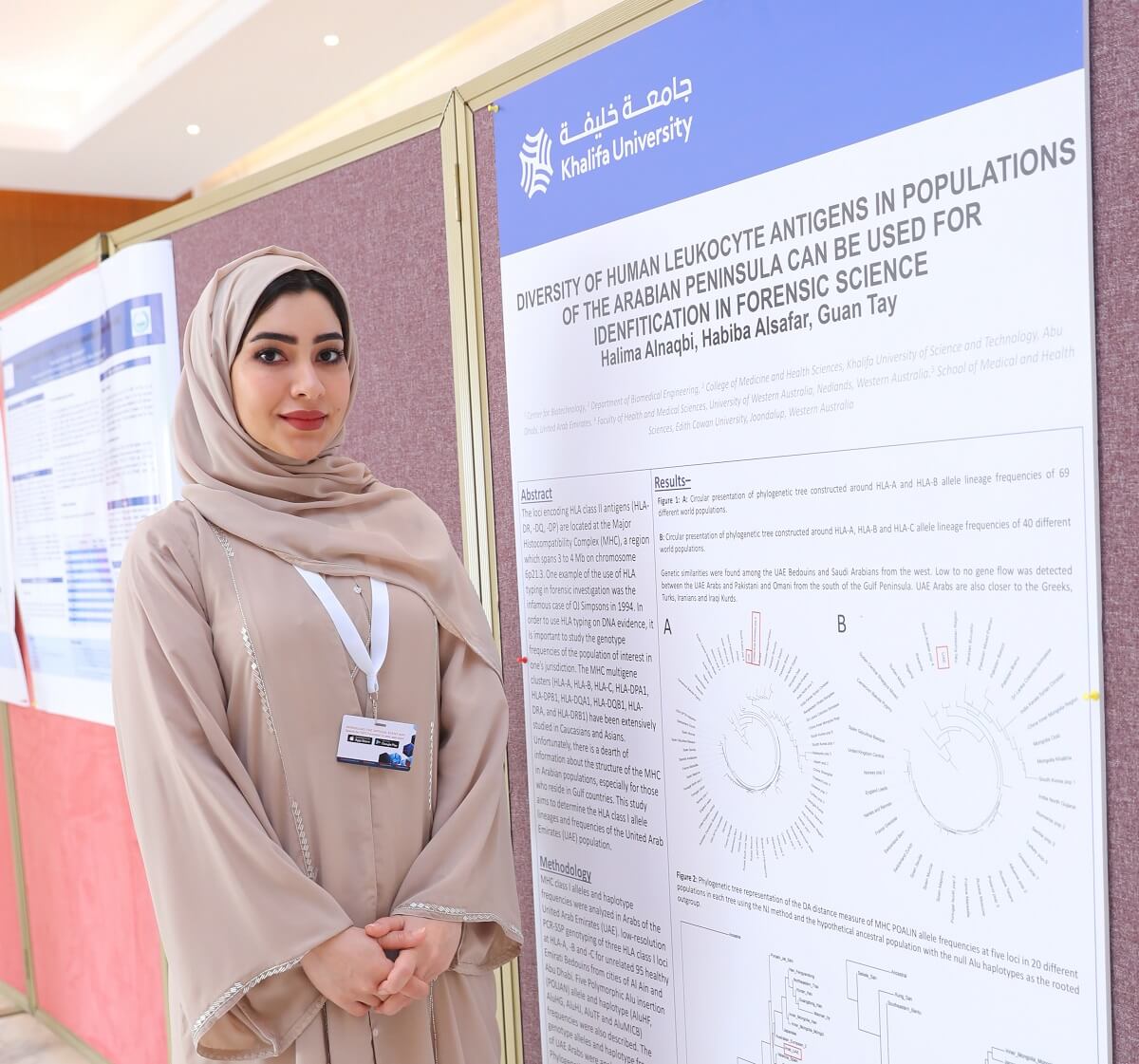
Halima Alnaqbi, PhD candidate in the Department of Biomedical Engineering, presented a poster at the 3rd GCC Forensic Conference and Exhibition entitled “The use of human leukocyte antigen diversity in the population of the Arabian Peninsula for anthropological studies.” Held in Bahrain for 2019, this event focused on the technological innovations in forensic science. Among the basic medical sciences involved in anthropology, immunogenetics (genes of the immune system) can be used as molecular markers to distinguish between ethnic groups. Genes encoding the human leukocyte antigen (HLA) are located in a part of the human genome known as the Major Histocompatibility…
Read more
Many populations in the Middle East are unified by common cultural practices, religion, and language. However, there are differences in the genome sequence within and between these groups. In a research first, a team of investigators from Khalifa University led by Dr. Habiba AlSafar, Director of KU’s Center for Biotechnology and Associate Professor of Genetics and Molecular Biology, has published a study in Scientific Reports introducing the whole genome sequences of two UAE nationals. The study found that unique genome variants exist within the UAE population. In 2003, the complete human genome was sequenced for the first time…
Read more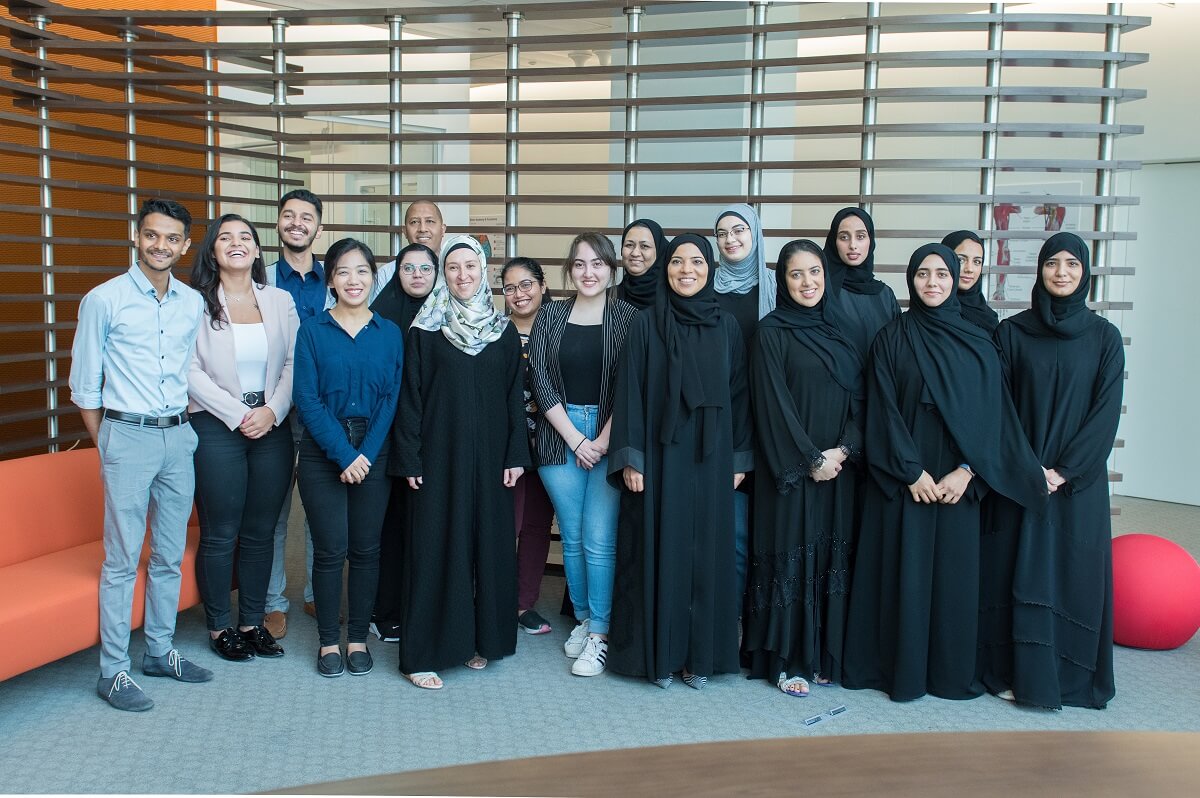
Dozens of students, professors and guests attended the “End of Summer Internship Program 2019” at Khalifa University’s Main Campus on Thursday, 1 August, 2019, to celebrate the culmination of eight weeks of hard work. The event was a fitting end to KU’s Center for Biotechnology (BTC) Summer Internship Program, which included eleven undergraduate student interns from Khalifa University, the University of Sharjah, New York University, American University of Ras Al-Khaimah, Monash University in Malaysia, and the School of Industrial Biology in France. Now in its fourth year, the BTC Summer Internship Program offers undergraduate students interested in biotechnology a hands-on…
Read more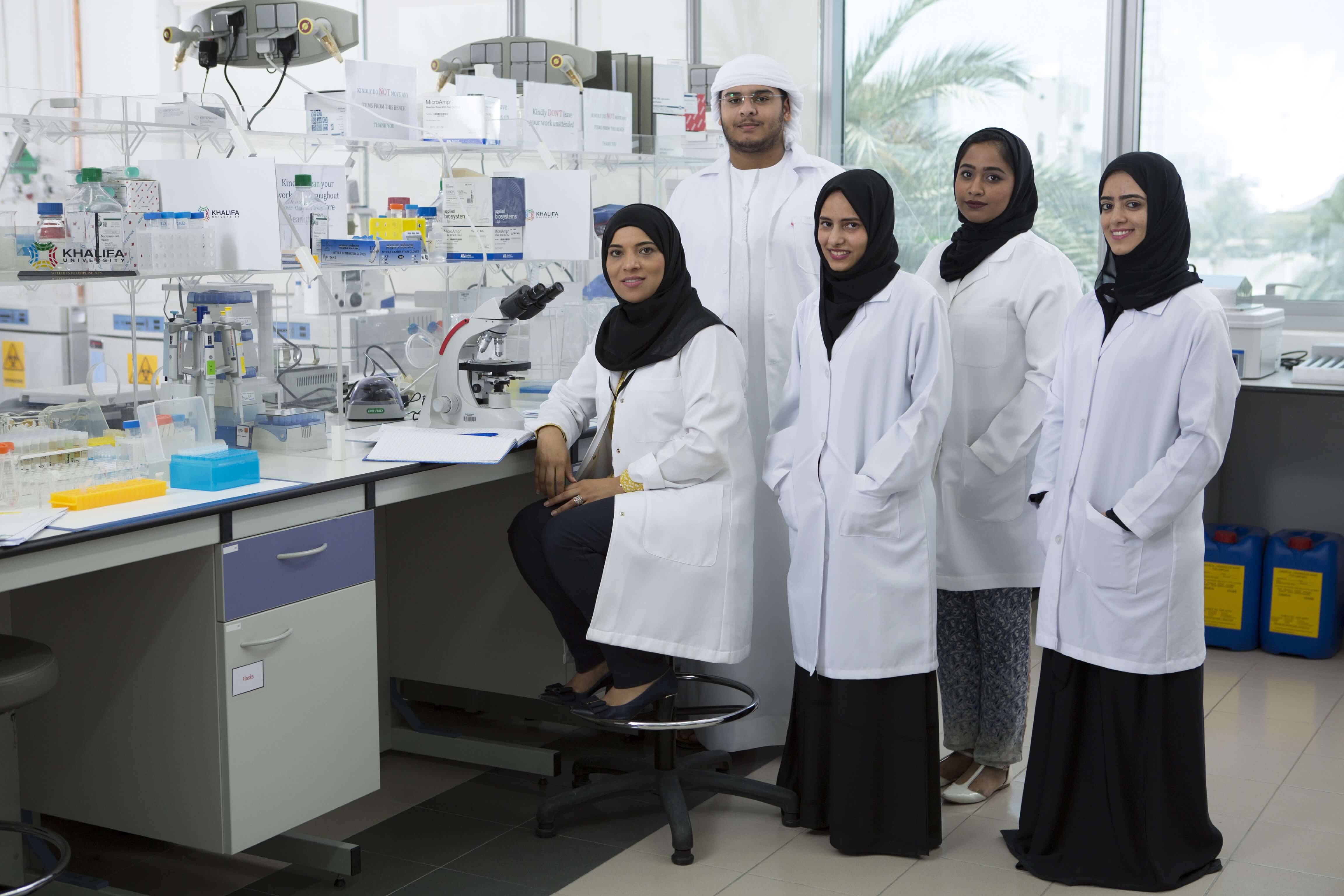
Project Offers Training Opportunities at Postgraduate and Undergraduate Levels in Genome Science and Biological Computing using AI and Big Data Analysis Abu Dhabi-UAE: 4 March, 2019 – Khalifa University of Science and Technology, a research university dedicated to the advancement of learning through discovery and application of knowledge, and Sandooq Al Watan, the private sector initiative to boost the UAE’s social development, today announced they will collaborate on a project to study genetic predisposition to cancer in the UAE, thus saving lives, healthcare costs and benefiting organ transplants. To be undertaken by the Khalifa University’s Center for Biotechnology (BTC), the…
Read more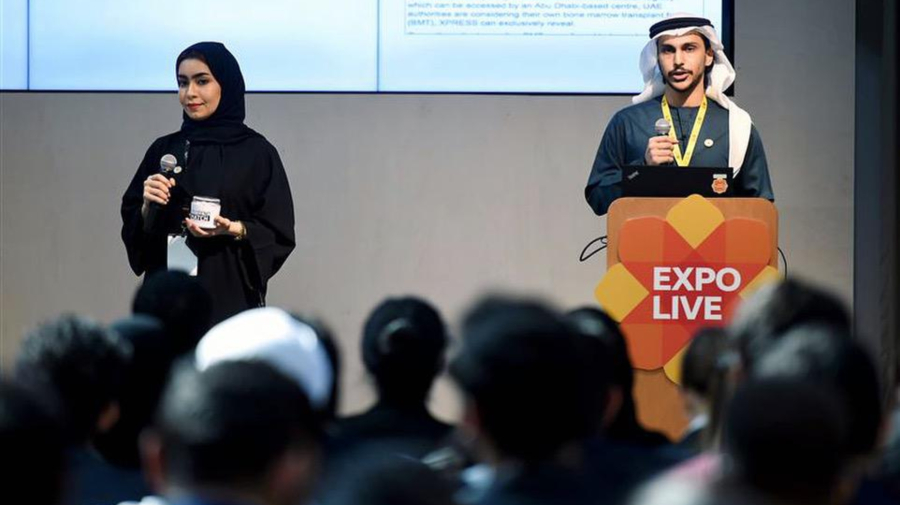
GenoMatch, Karbooj, and Thyroid on a ChiP Selected for Potential to Address Global Challenges Three student teams from Khalifa University were among the 28 teams from 16 universities that secured funding and support through Expo 2020 University Innovation Program (UIP) Expo Live. The teams – GenoMatch, Karbooj, and Thyroid on a ChiP – submitted their innovative ideas on Expo 2020’s subthemes of Opportunity, Mobility, and Sustainability. Expo Live’s UIP seeks to incentivize creative thinking, problem-solving, and collaboration between university students to address important global challenges. It awards grants to promising concepts that are relevant to the UAE and region so…
Read more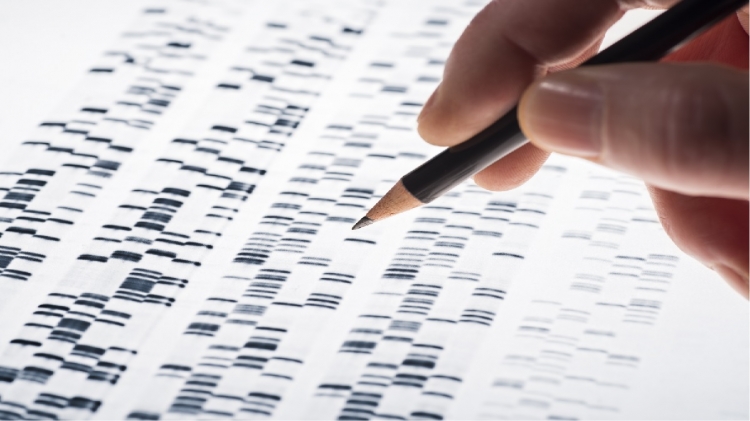
The unprecedentedly high prevalence of Type 2 Diabetes Mellitus (T2DM) among Emiratis may be linked to a genetic inability to metabolize Vitamin D properly, research at Khalifa University has indicated, and further exploration is underway to better understand the potential association. “The UAE has one of the highest rates of T2DM in the world and also one of the highest rates of vitamin D deficiency. This has often been considered a coincidence, but international research has been linking these two medical issues, and we sought to see if the Emirati genetic code had any answers to this association,” explained revealed…
Read more